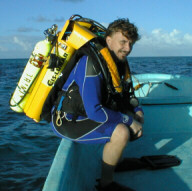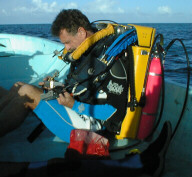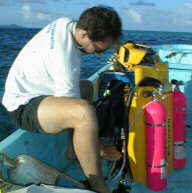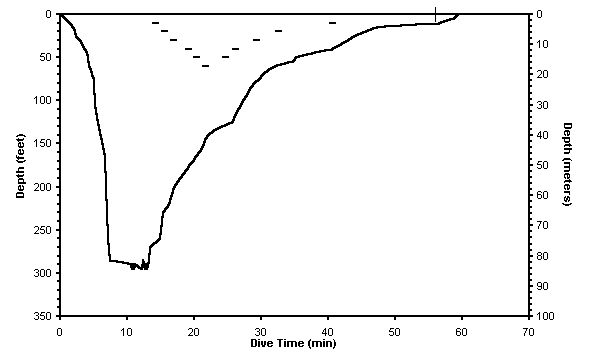Daily Log Report for
5
May 1997
Submitted by Richard Pyle
We loaded the boat late in the afternoon, and headed for a spot on the reef a few hundred yards north of yesterday's dive site. All started well, with Pat Colin shooting the pictures below. However, when John rolled into the water, he had to immediately abort because his breathing loop flooded. We later determined that I had neglected to replace a small port plug on part of the rebreather, which allowed the loop to flood. Because we didn't bring the tool kit with us today, we didn't have an extra plug to replace the missing one, so John and Pat waited in the boat most of the time while Ken and I did our dive.
 Richard Pyle |
 John Earle |
 Ken Corben |
Tomorrow morning, Ken and John will do some shallow dives for final testing of the rebreathers, and I need to meet with an officer with the Palau Division of Marine Resources to clear our collecting permits. After lunch, we plan to conduct our first "serious" deep dive.
